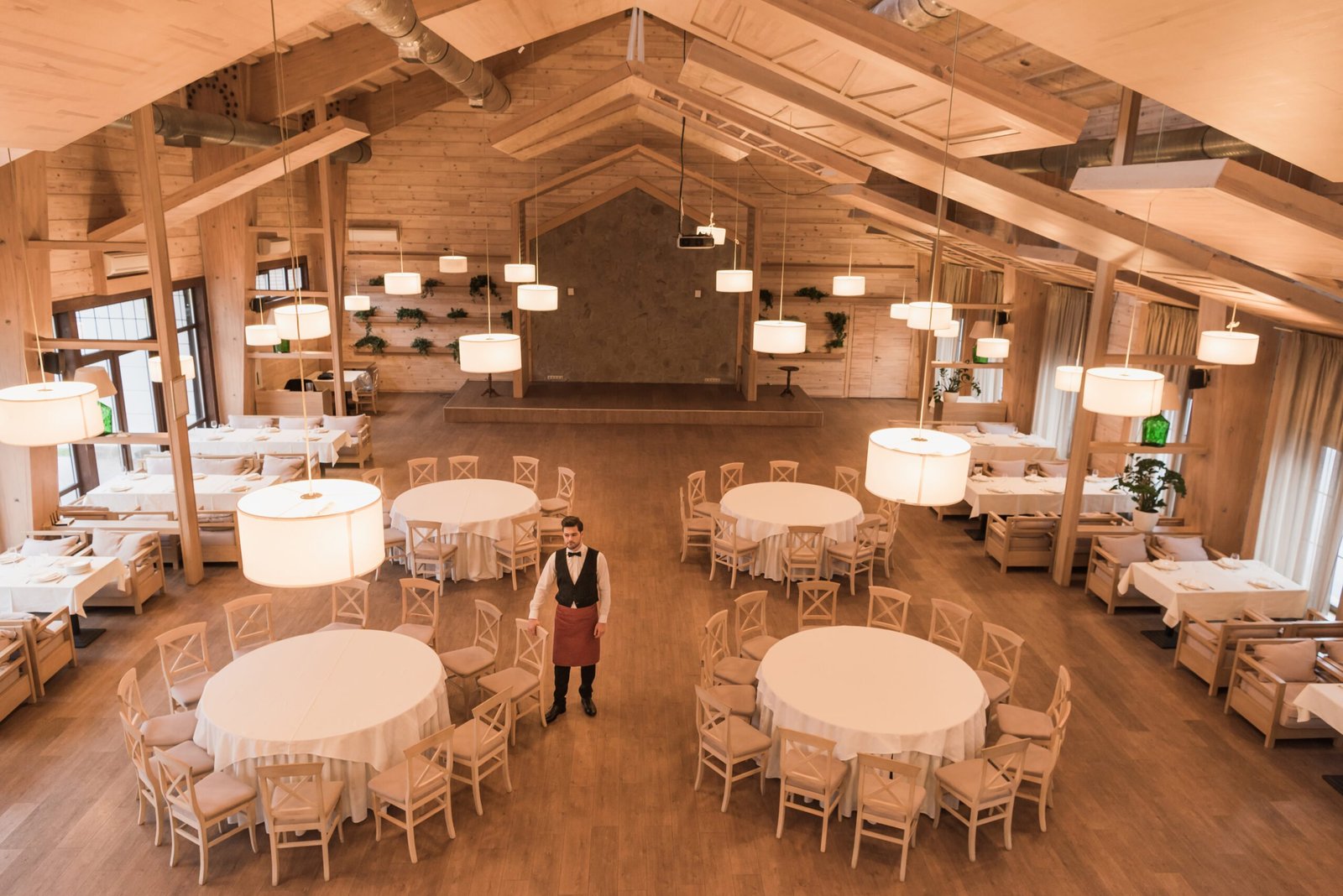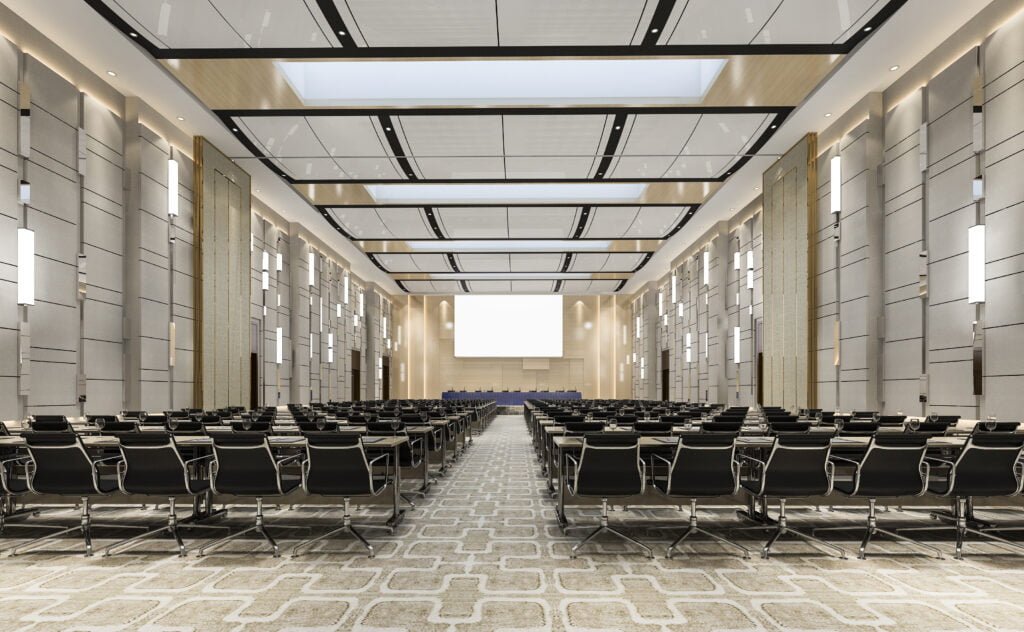Discover the 7 elements of an event

Planning an event can feel like a maze. With so many moving parts, it’s easy to get lost. The 7 key elements of event management provide a map for success, guiding you from start to finish.
This article breaks down these essentials, offering clear strategies and insights to navigate your event planning journey with confidence. Dive in and discover how to transform any occasion into a memorable experience.
Key Takeaways
- Planning events needs clear goals and the right team. You must know what you want to achieve and gather a group of people with different skills, from planning to problem-solving.
- Knowing your audience changes everything. When you understand who is coming, you can pick activities they will like. This makes the event fun for them.
- The place where your event happens is very important. You have to think about how big it is, where it is, and what it has. This ensures everyone has a good time.
- Events need lots of organization behind the scenes. People in charge have to make many money decisions, where things go, and how everything runs smoothly.
- Clients play a big role in events too. They decide on key details like when and where the event will be. Working closely with planners helps make sure their ideas come true at the event.
Core Concept of an Event

The core concept of an event is its beating heart. It’s the central idea that gives life to all aspects of planning and execution. This essential purpose defines what you aim to achieve, guiding every decision from choosing a venue to selecting speakers.
It ensures that everything aligns with the main focus and primary goal.
Understanding the fundamental concept is vital for success. It directs the event’s structure, influences its format, and provides clear information to attendees. The key intention serves as a compass throughout the planning process, making sure each element contributes towards achieving the primary objective.
With this in mind, decisions become easier as they all serve one master – the core mission of your event.
Main People Involved in an Event

Events come to life through the hard work of dedicated people. These individuals ensure that everything from planning to execution runs smoothly.
- Event Manager: This person takes charge of the whole event. They focus on understanding the event’s mission and purpose. With a written plan in hand, they coordinate every detail, making sure that the event aligns with its goals.
- Event Planner: Working closely with the manager, the planner assists in drafting the event’s blueprint. Their role is pivotal in deciding themes, selecting venues, and arranging logistics. They’re experts at crafting an experience that meets both client expectations and audience needs.
- Event Coordinator: Coordinators are the doers. They take care of scheduling, from setting up meetings to managing timelines. With a keen eye for details, they ensure nothing falls through the cracks—keeping everyone on track.
- Organisers: In any event team, organisers bring together all aspects of the project. They communicate with vendors, handle logistics, and solve problems as they arise. Their goal? To create a seamless experience for both guests and hosts.
- Venue Selection Experts: Choosing the right venue lays the foundation for a successful event. These specialists consider factors like size, location, and amenities to find a space that fits the event’s tone and scale perfectly.
- Logistics Masters: From transportation to accommodation and everything in between—they’ve got it covered. Logistics experts manage all logistical elements ensuring everyone involved has what they need when they need it.
- Production Team: They’re responsible for bringing creative visions to life. Whether it’s lighting, sound or stage design; their technical skills create immersive experiences for attendees.
- Audience Engagement Strategists: Understanding who will attend is crucial. These professionals tailor activities and content to match audience interests—keeping engagement high throughout.
Essential Talent for an Event
Planning an event requires a mix of skills and talents. Each talent plays a crucial role in making the event a success.
- Event Planning Skills: At the heart of any successful event lies detailed planning. This covers everything from setting dates to deciding on the event venue. Planners must be adept at scheduling and foreseeing potential challenges.
- Visualisation Abilities: Conceptualisation skills are indispensable for imagining and designing the layout of the event. Planners need to envision not just the physical space but also how it will feel to attendees.
- Creative Design: The aesthetic aspect cannot be overlooked. Design skills are vital for crafting engaging visuals, decorations, and promotional materials that match the theme of the event.
- Coordination and Management: Organisational skills ensure that every detail, from vendor lists to attendee registration, is meticulously arranged. Coordination keeps everyone on track.
- Client Communication: Clear and effective communication with clients guarantees their needs are understood and met. This fosters trust and ensures their vision for the event becomes a reality.
- Vendor Relationship Building: Networking savvy aids in creating strong connections with caterers, entertainers, decorators, and other suppliers. These relationships often result in smoother negotiations and better deals.
- Troubleshooting Abilities: Problem-solving skills are essential for dealing with unexpected issues promptly without disrupting the flow of events.
- Contract Negotiation: Negotiation skills empower planners to secure favourable contracts with vendors, ensuring both quality services and cost-effectiveness for their clients.
- Event Execution: Finally, bringing all elements together smoothly on D-day demonstrates supreme execution ability, ensuring guests leave with positive memories.
- Information Gathering Techniques: Research skills are crucial as they enable planners to gather information effectively, staying ahead of trends and aligning every element with client expectations.
Infrastructure of an Event
Event infrastructure acts as the backbone, ensuring everything runs smoothly. This includes securing the venue, setting up stages or presentation areas, and organising logistics like parking and accessibility.
It’s all about getting the basics right – date, time, and place must be crystal clear to everyone involved.
Managing this foundation involves a mix of event planning, coordination, and operations skills. Effective event organisation means giving attention to detail in every aspect – from lighting and sound to seating arrangements.
Each element plays a crucial role in creating an unforgettable experience for attendees while meeting the goals set by clients.
Target Audience of an Event
Pinpointing the target audience is a game-changer in event planning. This group’s preferences and demographics shape every aspect, from the theme to the activities. Market research, customer profiling, and analysing consumer behaviour are essential tools.
They unveil key demographic data and consumer preferences, guiding organisers toward creating engaging experiences.
Understanding your audience’s habits and resources ensures that every detail resonates with them. Age range, gender, geographical location—these factors define the target market.
Tailoring content to match these audience segments boosts engagement and guarantees a successful outcome for both attendees and clients alike.
Clients’ Role in an Event
Clients set the stage for an event. They decide what they want to achieve and share important details like date, time, and place. This information guides everything else in event planning.
Clients also have a big job in deciding who will come to the event. They know best about the audience and make sure the right people get invited.
They work closely with planners on budgeting and picking where the event will happen. Clients communicate expectations clearly—letting everyone know if there’s going to be a special speaker or a new product reveal.
Their input is essential from start to finish, making sure that their vision comes alive at the event.
Organisational Structure of an Event
The organisational structure of an event serves as its backbone, essential for seamless execution and overall success. It involves defining roles within the team—event planning, coordination, management, operations, logistics, staffing, budgeting, leadership, and administration.
Each member knows their specific tasks and how they fit into the bigger picture. This clear delineation of responsibilities ensures that everyone pulls in the same direction.
A well-crafted organisational structure relies on core principles such as centralisation and formalisation among others. These foundations help maintain order during both planning stages and actual event days.
They allow for a detailed map of the event site to be created and ensure efficient budget management. Through effective leadership within this framework, teams can overcome challenges swiftly—making sure that every aspect of the event unfolds without a hitch.
Starting Your Event Plan
Starting Your Event Plan is crucial for a successful event.
- Determine your event goals and objectives to give it a clear direction.
- Assemble your team to ensure effective planning and execution.
- Establish an event budget to guide your planning process responsibly.
- Choose a suitable date and venue based on your objectives and budget.
- Understand the mission or purpose of the event to guide your planning process effectively.
- Draft a written plan outlining the logistics and details of the event thoroughly.
- Manage the flow of the event meticulously for a seamless attendee experience.
Conclusion
Understanding the core concept, people, talent, structure, and audience is crucial for event success. Event managers empower people with powerful moments and memorable stories. Selecting an appropriate venue and managing the flow of the event are essential elements for success.
The nature of event infrastructure varies between different categories of events. Successful event management involves planning, budgeting, marketing & promotion, logistics, staffing, and evaluation.
For more detailed guidance on initiating your event planning journey, please visit how to start an event plan.
FAQs
1. What are the 7 elements of an event?
The 7 key elements of an event are venue, purpose, theme, date and time, target audience, logistics, and budget.
2. Why is it crucial to consider the target audience when planning an event?
Considering the target audience helps in tailoring the event to their preferences and needs for a more successful outcome.
3. How does the choice of venue impact an event?
The venue can influence the atmosphere, accessibility, and overall experience of the attendees at the event.
4. What role does logistics play in event planning?
Logistics involve managing practical aspects such as transport, scheduling, and facilities to ensure a smooth-running event.
5. Why is establishing a clear purpose essential for organising an event?
A clear purpose guides all other decisions and helps in creating a focused and impactful event experience for participants.
Related Posts
Event ROI Calculator: How R50,000 in Branding Equipment Generated R2.5 Million in Sales
When we say that R50,000 in branding gear drove R2.5 million in sales, that might sound like marketing fantasy. But for us at Event Branding, it’s a real-world illustration of event ROI done right. In this post, we’ll walk through how to calculate that ROI, step by step, using a simplified event roi calculator model. More importantly, we’ll show you
The Ultimate Guide to Hybrid Corporate Events in South Africa (2025 Edition)
South Africa’s event management market is growing at an impressive 5.10% CAGR, and the energy around events in 2025 is electric. Companies are moving beyond the old “either/or” mindset—no longer just choosing between an in-person event or virtual events. Instead, they’re embracing hybrid event models that offer in-person and virtual experiences seamlessly combined. This ultimate guide will show you how